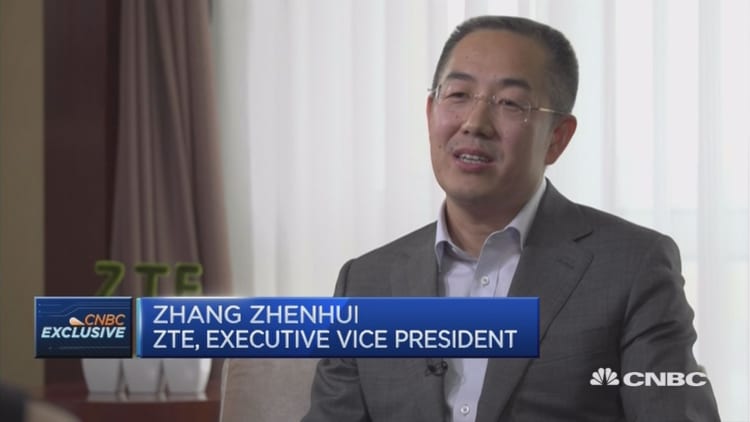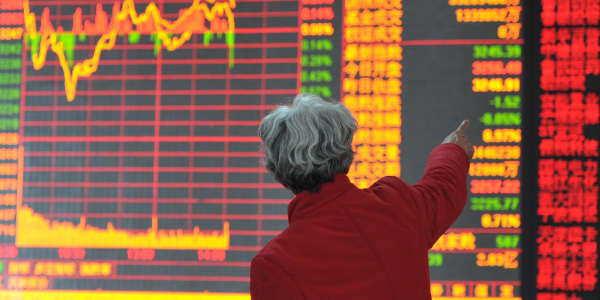MSCI's frontier market indices will see their biggest shakeup in three years next month. Starting in June, the index provider will begin classifying Pakistan as an emerging market, upgrading the country from its current frontier market status.
The move will have a significant effect on frontier market indices managed by MSCI and the $600 million iShares MSCI Frontier 100 (FM), the largest frontier ETF in the space.
More from ETF.com:
Retail ETF returns reflect industry upheaval
When and how to use niche ETFs
Real-world ETF questions
The removal of Pakistan, which currently accounts for almost 11 percent of the MSCI Frontier Markets 100 Index and the ETF that tracks it, will be the most notable reclassification for the index since Qatar and UAE were upgraded from frontier markets to emerging markets in 2014. Prior to their reclassification, Qatar and UAE accounted for 28 percent of the index.
Top 10 Country holdings for FM
| Country | Weighting (%) |
| Argentina | 19.9 |
| Kuwait | 19.5 |
| Pakistan | 11.3 |
| Vietnam | 7.9 |
| Morocco | 6.0 |
| Romania | 5.3 |
| Kenya | 5.2 |
| Nigeria | 5.0 |
| Bangladesh | 4.0 |
| Oman | 3.3 |
FM to become more concentrated
The reclassification of Pakistan is good news for the country, and perhaps for investors willing to hold the single ETF that specifically targets the country, the $46 million Global X MSCI Pakistan ETF (PAK). MSCI noted that the size and liquidity of the Pakistani equity market has grown significantly in recent years, prompting the upgrade.

But for investors who want diversified index exposure to frontier markets ― small, investable markets that don't meet the more stringent standards of emerging market classification ― the MSCI move raises a potential issue.
Frontier markets are risky. Removing one of the largest and most liquid holdings in frontier markets will make the space more concentrated and even riskier.
Moreover, such reclassification may not stop with Pakistan. MSCI noted that it is considering upgrading Argentina, currently the largest component of FM at 20 percent, and removing Nigeria and its 5 percent position from the index also. Those decisions will come next month and likely be implemented in 2018.
In other words, depending on what MSCI does, more than a third of the stocks making up its frontier markets index today could be gone by next year.
Other frontier market options
Should investors be concerned? Not necessarily, but they should be aware that frontier market investing is not for everyone. There's only one ETF targeting an MSCI frontier market index, and anyone investing in that fund should expect the high risk, high turnover and lack of liquidity that comes with the frontier market territory.
Investors should also consider that the frontier market space isn't just limited to MSCI indices or FM. The $63 million Guggenheim Frontiers Markets ETF (FRN) tracks the BNY Mellon New Frontier Index. A different index means different rules and exposure for FRN compared with FM.
Top 10 Country holdings for FRN
| Country | Weighting (%) |
| Argentina | 17.0 |
| Kuwait | 15.0 |
| Vietnam | 9.5 |
| Pakistan | 9.0 |
| Morocco | 8.2 |
| Nigeria | 8.1 |
| Romania | 6.9 |
| Panama | 6.1 |
| Oman | 5.5 |
| Kenya | 4.9 |
There's also the $15 million Global X Next Emerging & Frontier ETF (EMFM) to consider. It tracks the Solactive Next Emerging & Frontier Index. EMFM holds a blend of frontier market and emerging market stocks. Crucially, it excludes stocks of the largest emerging market countries, such as Brazil, China, India and Russia, creating a unique type of exposure for investors.
Top 10 Country Holdings For EMFM
| Country | Weighting (%) |
| Thailand | 11.7 |
| Indonesia | 10.3 |
| Malaysia | 9.0 |
| Mexico | 8.8 |
| South Africa | 8.1 |
| Turkey | 7.3 |
| Poland | 6.0 |
| Chile | 4.5 |
| Argentina | 4.1 |
| Philippines | 4.0 |
Interestingly enough, FM, FRN and EMFM have all performed similarly this year. The chart below shows their year-to-date performance.
Chart courtesy of StockCharts.com
Frontier market investing is relatively new; the first investable indices were launched 10 years ago by Standard & Poor's and a year later by MSCI. In that time frame, a number of countries have come in and out of frontier market status.
Regardless of whether MSCI reclassifies Pakistan, Argentina and Nigeria out of frontier markets, new countries will eventually take their place. There may be periods where the frontier market space shrinks or becomes less liquid, but that is to be expected.
As Hertta Alava, fund manager for FIM Asset Management, recently told Bloomberg: "There are over 100 countries in the world that don't have a proper stock market yet, so there will be new countries, but it will take time."
— By Sumit Roy, ETF.com




